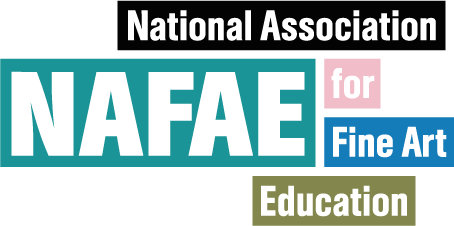We are The National Association for Fine Art Education, the Subject Association for Fine Art education in the UK. We advocate the interests, promotion and cultural relevance of Fine Art education at Foundation, BA, MA and PhD levels.
We are The National Association for Fine Art Education, the Subject Association for Fine Art education in the UK. We advocate the interests, promotion and cultural relevance of Fine Art education at Foundation, BA, MA and PhD levels.
Welcome to NAFAE
The Subject Association for Fine Art Education.
Our mission is to advocate for the cultural relevance and continued development of Fine Art in higher education. We welcome institutions, organisations or individuals with an interest in Fine Art education or the wider arts to join us as members.
NAFNET 2026
NAFNET, our member focused forum, is returning for 2026. These online sessions are a chance to discuss important aspects of Fine Art education in the current climate. A member of the NAFAE steering committee chairs each online session around prompts to a theme. Join us to share experiences, good practice, ideas, engage in debate and to listen in.
View upcoming sessions on our events page.
Annual Conference 2026
It Takes a Village to Raise an Artist:
Local, Trans-local, Global
Friday 24 April, Rochdale
CALL FOR PAPERS OPEN UNTIL 13 FEBRUARY
Our 2026 conference continues the themes of co-operation and mutuality in the support of fine art and visual education, focusing on the importance of place, and initiatives that mitigate barriers to creative and cultural learning, practice and skills acquisition.

